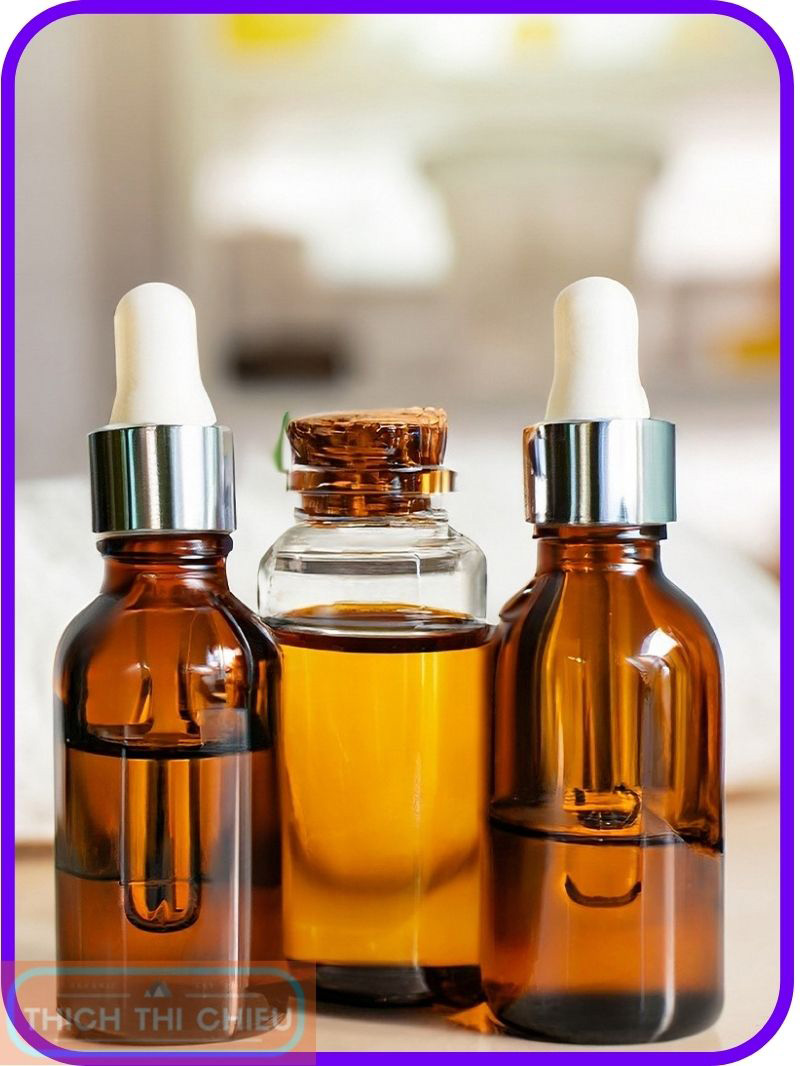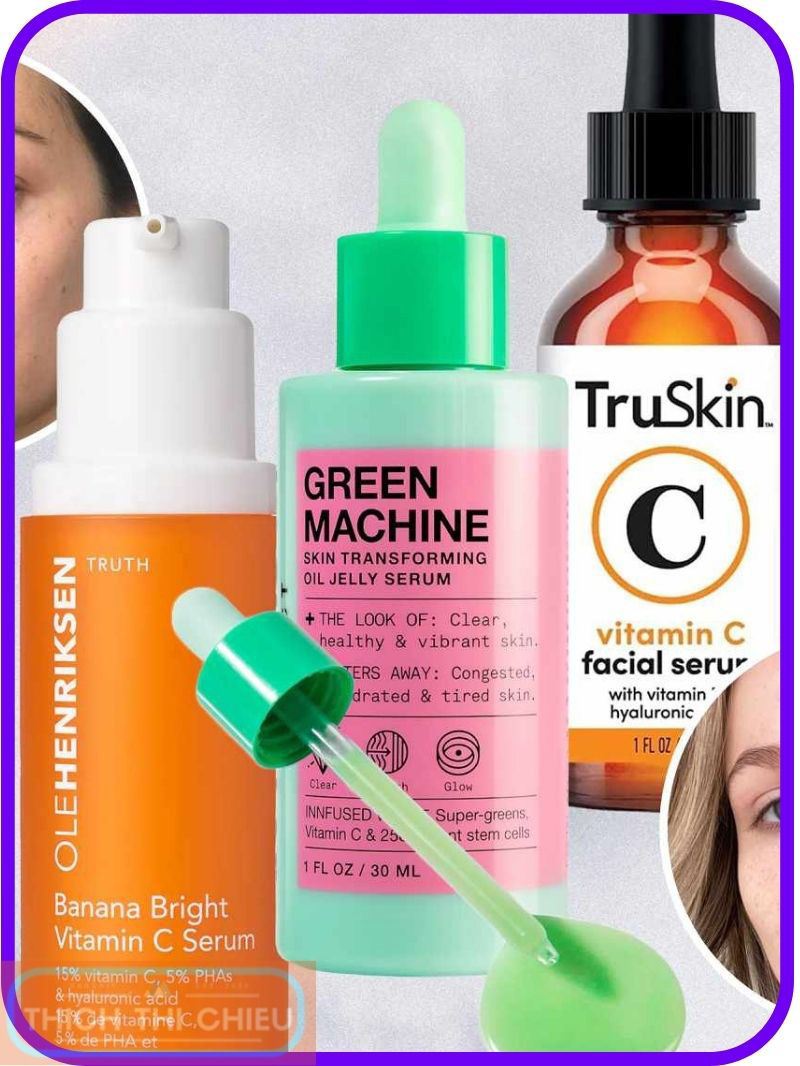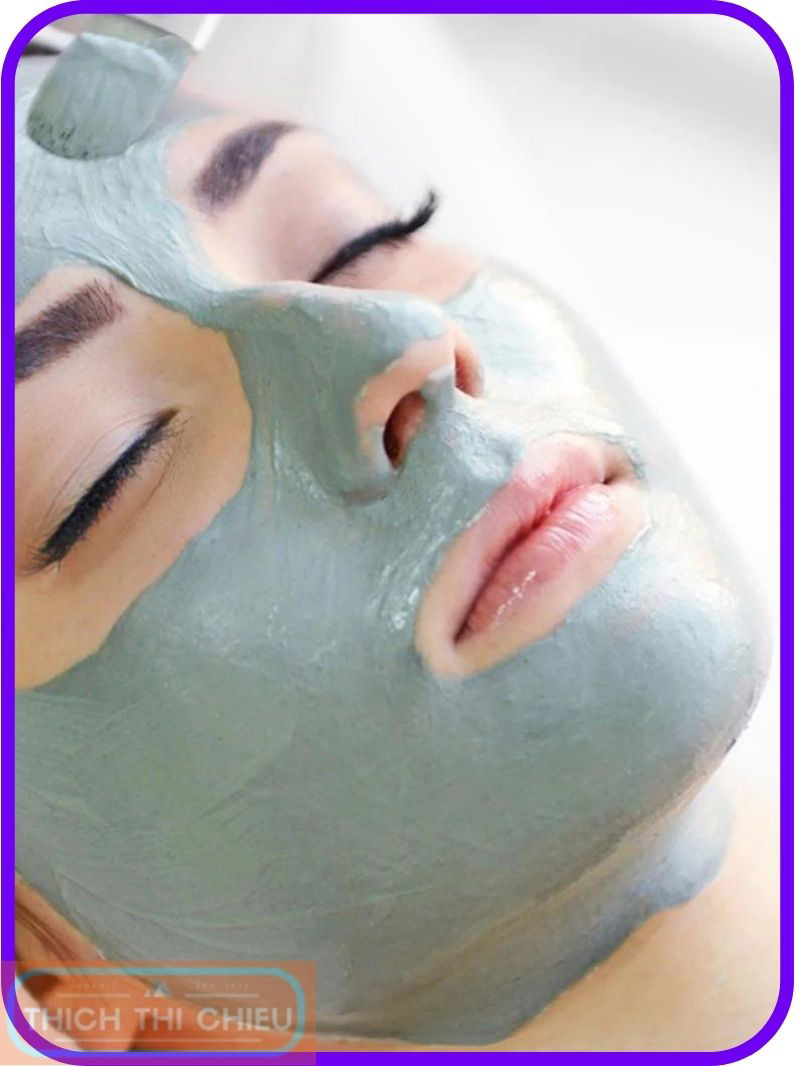Waking up to radiant, glowing skin is a dream come true for many. While achieving flawless skin requires a comprehensive approach that encompasses lifestyle habits, dietary choices, and consistent skincare practices, there are some quick and effective overnight strategies that can significantly boost your skin’s glow.
In this article, we’ll delve into simple yet powerful techniques that will transform your skin overnight, leaving you with a refreshed, revitalized complexion upon waking.
Embark on a journey of skin transformation with these easy-to-follow tips and discover the secrets to unlocking your skin’s natural radiance.
Cleanse and Exfoliate for a Flawless Canvas
Thorough Cleansing: The First Step to Radiant Skin
Achieving a radiant, healthy complexion starts with a thorough cleansing routine. Throughout the day, our skin accumulates dirt, impurities, and makeup residue, which can clog pores, dull the complexion, and contribute to breakouts. A gentle yet effective cleanser helps remove these buildup, leaving your skin feeling clean, refreshed, and prepared for further skincare steps.
Choosing the Right Cleanser for Your Skin Type
When selecting a cleanser, it’s crucial to consider your skin type. For oily or acne-prone skin, opt for a gel-based cleanser that helps control excess oil and prevent breakouts. For dry or sensitive skin, choose a hydrating, cream-based cleanser that gently cleanses without stripping the skin of its natural oils.
Gentle Exfoliation for a Brighter, Smoother Complexion
Exfoliation is an essential part of any skincare routine, as it helps remove dead skin cells and reveal a brighter, smoother complexion. However, it’s important to exfoliate gently and avoid over-exfoliating, which can irritate the skin.
Natural Exfoliants
Natural exfoliants like oatmeal, honey, or sugar are gentle and effective ways to remove dead skin cells. Oatmeal is known for its anti-inflammatory properties, making it suitable for sensitive skin. Honey is a natural humectant, meaning it helps attract and retain moisture, leaving skin feeling soft and hydrated. Sugar granules are slightly more abrasive, making them ideal for exfoliating dry, rough areas like the elbows or knees.
Chemical Exfoliants
Chemical exfoliants, such as glycolic acid or lactic acid, work by breaking down the bonds between dead skin cells, allowing them to be easily removed. Glycolic acid is suitable for oily or acne-prone skin, as it helps control oil production and unclog pores. Lactic acid is gentler than glycolic acid and is suitable for most skin types, including sensitive skin.
Exfoliating Frequency
The frequency of exfoliation depends on your skin type and sensitivity. For oily skin, exfoliate 1-2 times per week. For normal or combination skin, exfoliate once a week. For dry or sensitive skin, exfoliate every 1-2 weeks.
Creating a Flawless Canvas
By incorporating gentle cleansing and exfoliation into your skincare routine, you’ll remove impurities, promote cell turnover, and reveal a brighter, smoother complexion. Remember to choose a cleanser and exfoliant that suits your skin type and avoid over-exfoliating. With consistent care, you’ll unveil your skin’s natural radiance and achieve a flawless canvas for makeup application.
Embrace the Power of Serums for Targeted Skin Solutions
Serums are concentrated solutions packed with potent active ingredients that target specific skin concerns, making them an invaluable addition to your skincare regimen. These lightweight, oil-based formulas offer a higher concentration of active ingredients than moisturizers, allowing them to penetrate deeper into the skin and deliver more pronounced results.
Choosing the Right Serum for Your Skin Concerns
The world of serums offers a vast array of options, each formulated to address specific skin concerns. To choose the right serum for your skin, consider your primary concerns and desired outcomes:
- Hyaluronic Acid Serum: This serum is a must-have for all skin types, as it deeply hydrates and plumps the skin, leaving it feeling soft, supple, and revitalized
- Vitamin C Serum: Vitamin C is a powerful antioxidant that brightens the complexion, reduces hyperpigmentation, and boosts collagen production for a youthful glow
- Retinol Serum: Retinol is a vitamin A derivative that targets fine lines, wrinkles, and age spots, promoting skin renewal and a more youthful appearance
- Niacinamide Serum: Niacinamide is a versatile ingredient that helps control oil production, reduce inflammation, and minimize the appearance of enlarged pores
Applying Serums for Optimal Results
To maximize the benefits of your serums, follow these application tips:
- Cleanse and Exfoliate: Before applying serum, thoroughly cleanse and exfoliate your skin to remove any impurities and prepare it for better absorption.
- Apply to Damp Skin: Apply a few drops of serum to damp skin, allowing it to penetrate more effectively.
- Target Specific Areas: Focus on applying serum to areas that need the most attention, such as the forehead, cheeks, and around the eyes.
- Follow with Moisturizer: After applying serum, lock in the hydration with a moisturizer suitable for your skin type.
- Incorporate into Your Routine: Use your serum consistently, either morning and evening or as recommended by your dermatologist.
Unleash the Glow with Vitamin C’s Brightening Power
Vitamin C, a potent antioxidant, is a skincare powerhouse that works wonders for brightening the complexion, reducing hyperpigmentation, and enhancing the overall radiance of your skin. As an essential nutrient, vitamin C plays a crucial role in collagen production, the protein responsible for skin’s elasticity and youthful appearance. By incorporating vitamin C into your skincare routine, you can unveil a brighter, more even-toned complexion and combat the visible signs of aging.
Vitamin C: The Brightening Superhero
Vitamin C’s brightening power stems from its ability to inhibit melanin production, the pigment that gives skin its color. By reducing melanin production, vitamin C helps to fade hyperpigmentation, dark spots, and age spots, resulting in a more even skin tone. Additionally, vitamin C promotes collagen synthesis, boosting skin’s elasticity and reducing the appearance of fine lines and wrinkles.
Incorporating Vitamin C into Your Skincare Routine
To maximize the benefits of vitamin C, follow these incorporation tips:
- Choose a Stabilized Vitamin C Serum: Opt for a stabilized vitamin C serum, as it has a longer shelf life and is more effective in penetrating the skin
- Apply After Cleansing and Before Moisturizing: Apply your vitamin C serum after cleansing but before moisturizing, allowing it to absorb properly before applying other products.
- Use Morning and Night: For optimal results, use your vitamin C serum both morning and night.
- Avoid Exfoliating Before Applying: Avoid exfoliating your skin immediately before applying vitamin C serum, as this can cause irritation.
- Protect from Sun Exposure: After applying vitamin C serum, follow up with a broad-spectrum sunscreen with SPF 30 or higher to protect your skin from sun damage and prevent hyperpigmentation.
The Benefits of Overnight Masks
Overnight masks are a luxurious addition to your skincare routine, providing a boost of hydration and nourishment to your skin while you sleep. These rich, concentrated formulas work their magic while you snooze, leaving your skin feeling refreshed, supple, and revitalized upon waking.
Overnight masks offer a range of benefits, including:
- Intense hydration: Overnight masks are packed with humectants, which attract and retain moisture, leaving your skin feeling supple and plump.
- Nutritional boost: These masks typically contain a variety of nourishing ingredients, such as ceramides, peptides, and antioxidants, which help to strengthen the skin and protect it from damage.
- Reduced fine lines and wrinkles: Overnight masks can help to smooth out fine lines and wrinkles by plumping up the skin and boosting collagen production.
- Improved skin texture: Overnight masks can help to refine skin texture and reduce the appearance of unevenness.
Choosing the Right Overnight Mask
The key to choosing the right overnight mask is to select one that suits your skin type and concerns. For oily or acne-prone skin, opt for a lightweight, gel-based mask that won’t clog pores. For dry or mature skin, choose a rich, cream-based mask that provides deep hydration.
Applying Overnight Masks for Optimal Results
To maximize the benefits of your overnight mask, follow these application tips:
- Cleanse and Exfoliate: Before applying the mask, cleanse your skin to remove any dirt, oil, or makeup. If you have oily or acne-prone skin, you can gently exfoliate to remove dead skin cells.
- Apply Generously: Apply a generous layer of the mask to your face and neck, ensuring even coverage.
- Leave On Overnight: Leave the mask on for 15-20 minutes while you sleep.
- Rinse Off: In the morning, rinse your face with warm water and pat it dry.
Additional Tips for Overnight Mask Bliss
- Apply the mask after applying any serums or treatments.
- If you have sensitive skin, patch test the mask on a small area of your skin before applying it to your entire face.
- Store the mask in a cool, dark place.
Embrace the Restorative Power of Quality Sleep for Radiant Skin
While a consistent skincare routine and a balanced diet are essential for healthy skin, the importance of quality sleep cannot be overstated. As we slumber, our bodies undergo a remarkable process of repair and rejuvenation, including our skin. During sleep, our skin cells regenerate, collagen production is boosted, and blood flow to the skin increases, all of which contribute to a more youthful, radiant complexion.
The Science Behind Sleep and Skin Health
Sleep plays a crucial role in maintaining skin health and promoting its natural repair mechanisms. As we enter deep sleep, our bodies release hormones that stimulate collagen production. Collagen, a protein that provides skin its structure and elasticity, is essential for maintaining a youthful appearance and reducing the appearance of fine lines and wrinkles.
Moreover, sleep promotes cell turnover, the process by which new skin cells are generated to replace damaged or old ones. This constant regeneration is essential for maintaining a healthy, radiant complexion.
Aim for 7-8 Hours of Quality Sleep
Most adults need around 7-8 hours of quality sleep each night to allow their bodies to fully repair and rejuvenate themselves. When we don’t get enough sleep, our bodies produce higher levels of the stress hormone cortisol. Cortisol can lead to inflammation, which can contribute to skin problems such as acne, eczema, and premature aging.
Creating a Relaxing Bedtime Routine
Establishing a relaxing bedtime routine can significantly improve your sleep quality. Here are some tips to create a peaceful nighttime ritual:
- Avoid screen time before bed: The blue light emitted from electronic devices can interfere with sleep by suppressing melatonin production, a hormone that regulates sleep-wake cycles.
- Create a calming environment: Dim the lights, put on soothing music, and keep your bedroom cool and dark.
- Engage in relaxing activities: Take a warm bath, read a book, or practice meditation to unwind before bed.
- Stick to a regular sleep schedule: Aim to go to bed and wake up at the same time each day, even on weekends.
- Avoid caffeine and alcohol: These substances can interfere with sleep, making it harder to fall asleep and stay asleep.
- Regular exercise: Regular physical activity can promote better sleep, but avoid strenuous exercise too close to bedtime.
Prioritize Sleep for Healthy, Radiant Skin
By prioritizing quality sleep, you can give your skin the rest it needs to repair, rejuvenate, and glow. Make sleep an integral part of your self-care routine, and you’ll wake up to a complexion that reflects the restorative power of a good night’s sleep.
Additional Tips for Enhancing Sleep Quality
- Optimize your sleep environment: Ensure your bedroom is dark, quiet, and cool for optimal sleep conditions.
- **Consider using blackout curtains or an eye mask to block out light.
- **Invest in a comfortable mattress and pillows to promote restful sleep.
- **Create a relaxing bedtime routine that signals to your body that it’s time to wind down.
- Practice relaxation techniques such as deep breathing or meditation to calm your mind and body before sleep.
Nourish Your Skin from Within with a Balanced Diet
The Importance of a Balanced Diet for Skin Health
A balanced diet provides your body with the essential nutrients it needs to support various bodily functions, including skin health. These nutrients include:
- Vitamin C: This powerful antioxidant helps protect skin from sun damage, boosts collagen production, and reduces inflammation
- Zinc: Zinc supports skin repair and regeneration, and it plays a role in wound healing
- Omega-3 fatty acids: These essential fats help maintain skin hydration and reduce inflammation
- Vitamin E: Vitamin E is a potent antioxidant that helps protect skin cells from damage and may reduce the appearance of fine lines and wrinkles
Incorporating Nutrient-Rich Foods into Your Diet
To nourish your skin from within, focus on incorporating a variety of nutrient-rich foods into your diet. Here are some suggestions:
- Fruits: Include plenty of fruits in your diet, such as citrus fruits, berries, and apples, to reap the benefits of vitamin C and antioxidants.
- Vegetables: Consume a variety of vegetables, including leafy greens, carrots, and bell peppers, for a boost of vitamins, minerals, and fiber.
- Whole grains: Opt for whole grains over refined grains, as they provide a wealth of nutrients, including B vitamins, fiber, and zinc.
- Healthy fats: Include healthy fats in your diet, such as those found in avocados, nuts, and seeds, to support skin hydration and reduce inflammation.
- Omega-3 fatty acids: Consume omega-3 fatty acids-rich foods, such as fatty fish, salmon, and flaxseeds, to promote skin health and reduce inflammation.
Additional Tips for Skin-Healthy Eating
- Hydrate adequately: Drink plenty of water throughout the day to keep your skin hydrated and support its natural functions.
- Limit processed foods: Minimize your intake of processed foods, sugary drinks, and excessive amounts of saturated and unhealthy fats.
- Prioritize home-cooked meals: Whenever possible, prepare meals at home using fresh, wholesome ingredients to control the quality and nutrient content of your food.
Hydrate Adequately to Keep Your Skin Plump and Glowing
Water is essential for life, and it’s no different for your skin. When your skin is properly hydrated, it looks and feels plump, smooth, and radiant. Conversely, dehydration can lead to dry, flaky skin, fine lines, and wrinkles.
Drink Plenty of Water
The best way to keep your skin hydrated is to drink plenty of water throughout the day. Aim for eight glasses of water per day, or more if you exercise or live in a hot climate. Water helps to replenish the moisture in your skin cells and keeps them plump and elastic.
Avoid Excessive Alcohol and Caffeine
Both alcohol and caffeine can dehydrate your skin. Alcohol can cause the blood vessels in your skin to dilate, which can lead to redness and flushing. Caffeine can also make your skin feel dry and tight. If you’re looking to improve your skin’s hydration, it’s best to limit your intake of alcohol and caffeine.
Use a Humidifier
If you live in a dry climate or spend a lot of time indoors with the air conditioning on, your skin may be more prone to dehydration. One way to combat this is to use a humidifier. A humidifier adds moisture to the air, which can help to keep your skin hydrated and prevent it from becoming dry and flaky.
Additional Tips for Hydration
- Eat fruits and vegetables that are high in water content. Watermelon, cucumber, and spinach are all great choices.
- Use a hydrating moisturizer. Look for a moisturizer that contains hyaluronic acid, which is a naturally occurring substance that helps to bind water to your skin cells.
- Take a lukewarm bath or shower. Avoid using hot water, as it can strip your skin of its natural oils.
- Moisturize your skin after bathing or showering. This will help to seal in moisture and prevent your skin from drying out.
- Exfoliate gently. Exfoliating helps to remove dead skin cells and reveal the healthier skin underneath. However, be careful not to exfoliate too often, as this can irritate your skin.
Achieving radiant, glowing skin doesn’t require a lengthy skincare regimen that takes hours to complete. There are simple yet effective overnight practices that can significantly enhance your complexion and awaken you to a more luminous, healthy glow. By incorporating these techniques into your routine, you can unveil a radiant, youthful appearance that radiates from within. Hopefully, the above article of TTC has provided you with useful information. If you have any questions or concerns, please leave a comment below.








Leave a Reply